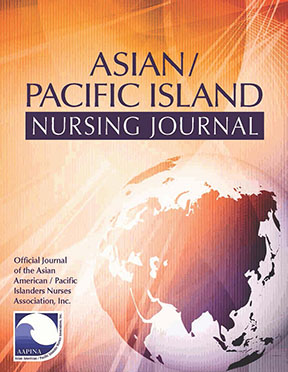
Asian/Pacific Island Nursing Journal (Open Access)
Volume 5, Issue 1 (2020)
The new issue includes the following articles:
Building Safe Didactic Dialogues for Action Model: Mobilizing Community with Micronesian Islanders
Connie K. Y. Nguyen-Truong Dr., Jacqueline Leung Dr., Kapiolani Micky, and Jennifer I. Nevers
How Do Acculturation, Maternal Connectedness, and Mother-Daughter Sexual Communication Affect Asian American Daughters’ Sexual Initiation
BoRam Kim, Yurun Cai, and Teri Aronowitz
What works in mindfulness interventions for medically unexplained symptoms? : a systematic review
Ruel Billones, Nada Lukkahatai, and Leorey Saligan
Review of the Scientific Literature on Young Adults Related to Cardiovascular Disease Intervention
Dieu-My T. Tran and Angela Sojobi
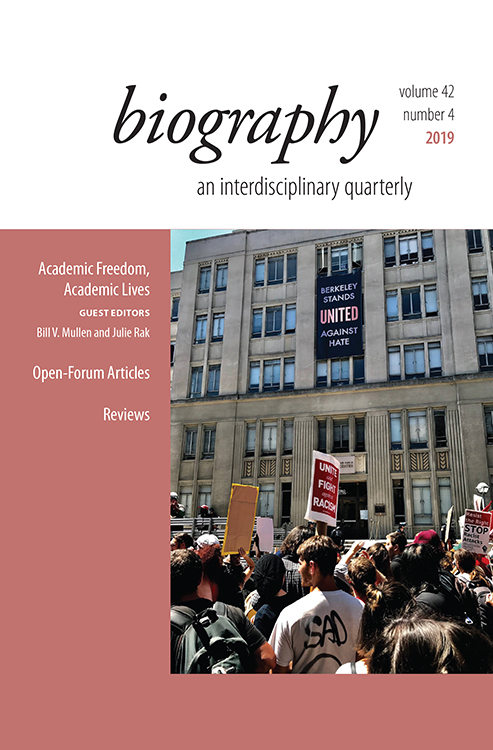
Biography
Academic Freedom, Academic Lives, Guest Edited by Bill V. Mullen and Julie Rak
Volume 42, Issue 4 (2019)
From the guest editors’ introduction:
Academic freedom is currently highly public and highly contested terrain. What academic freedom actually means has become an urgent question, as alt-right activists have turned the tenets of academic freedom to their own ends, whether on college and university campuses, or through the actions of right-wing governments as they move to suppress dissent. We want to reclaim the concept of academic freedom for the left and for academic activism, not through a debate about the concept as an abstraction, but in connection to what we see as the radical potential of academic lives. Thinking of academic lives as interpretation and critique is a way to disrupt the current alt-right control of public discourse about freedom of speech. Read the special issue introduction free here.
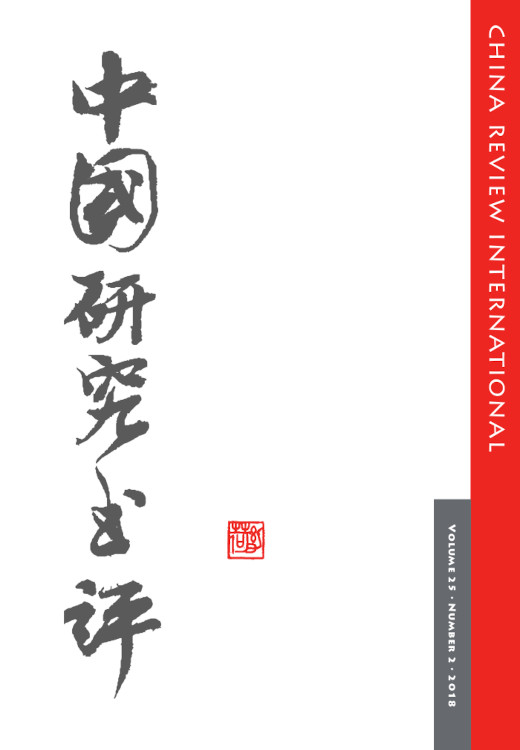
China Review International
Volume 25, Issue 2 (2018)
This issue of China Review International begins with the following reviews:
Sexuality in China: Histories of Power and Pleasure ed. by Howard Chiang (review)
Tani Barlow
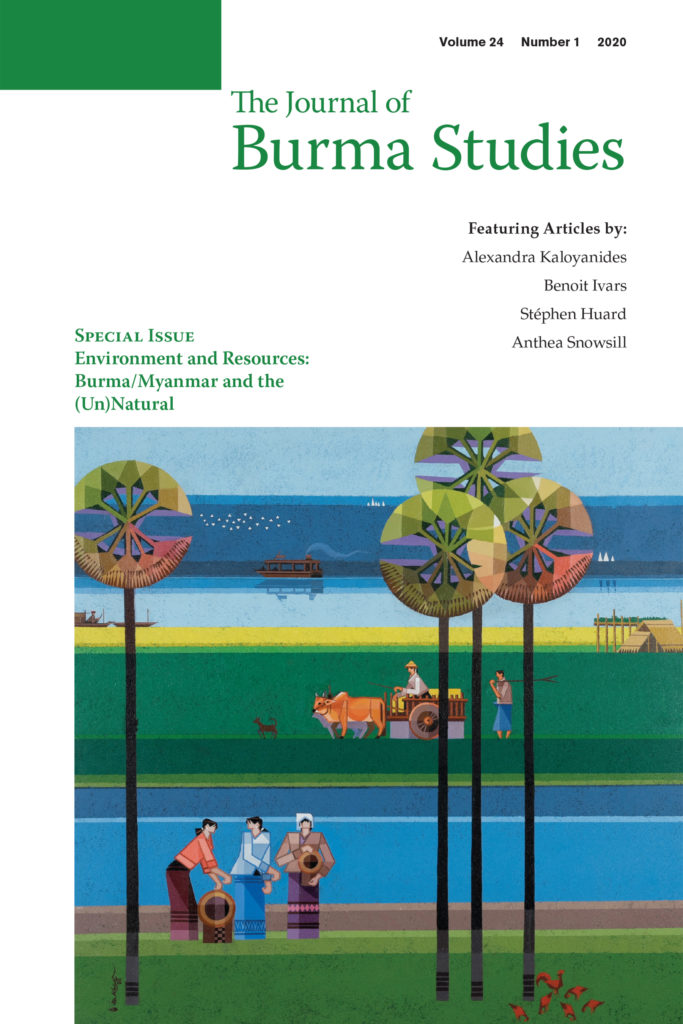
The Journal of Burma Studies
Special Issue: Environment and Resources: Burma/Myanmar and the (Un)Natural
Volume 24, Issue 1 (2020)
The editor’s note for this special issue begins:
From touristic impressions to geopolitical analyses, ubiquitous are the tremendous and varied natural resources of Myanmar. Teak forests, oil and gas reserves, precious gemstones, biodiversity, and the list goes on. The very meaning of the concept of resource, however, suggests that the country contains things of tremendous potential human, economic use, and therefore value. With the resources, mapping, and study of them, there is the seemingly boundless potential for greater wealth to be accumulated. On the other hand, discourse regarding natural beauty and wonder can be a purposeful distraction from ongoing issues of war and exploitation. Discussing the country’s abundance of resources, however, is never a neutral proposition: for outsiders looking in, there is frequently a value-laden assumption which guides the observation that the various regimes and economic interests are not responsibly conserving these resources for the greater good (however nebulous that may be). Life itself (before we even label it a natural resource) is already an active zone of economic production, engineering, banking, commodification, and exchange (Palsson 2016:4). The definition, mapping, laws, and social relationships which name and frame resources in Myanmar are of ongoing heuristic, cultural, economic, and inevitably political concern.
With this problematic in mind, in this Special Issue of The Journal of Burma Studies (JBS) we have gathered together an interdisciplinary set of research articles surrounding questions of what nature is and what its resources might be. With the four authors’ varied focus on historical and contemporary Myanmar, this set of papers offers challenging new vistas for the exploration and interrogation of how resources and the environment have been approached and brokered by local and transnational actors. Read the special issue introduction free here.
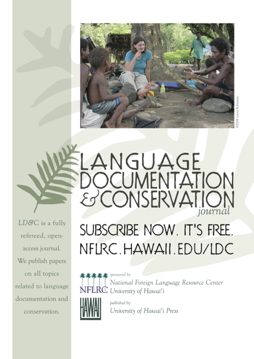
Language Documentation & Conservation
Volume 14 (2020)
New articles in LD&C in July:
Finding Hawu: Legacy data, finding aids and the Alan T. Walker Digital Language Collection
Determinants of phonetic word duration in ten language documentation corpora: Word frequency, complexity, position, and part of speech with supplementary material
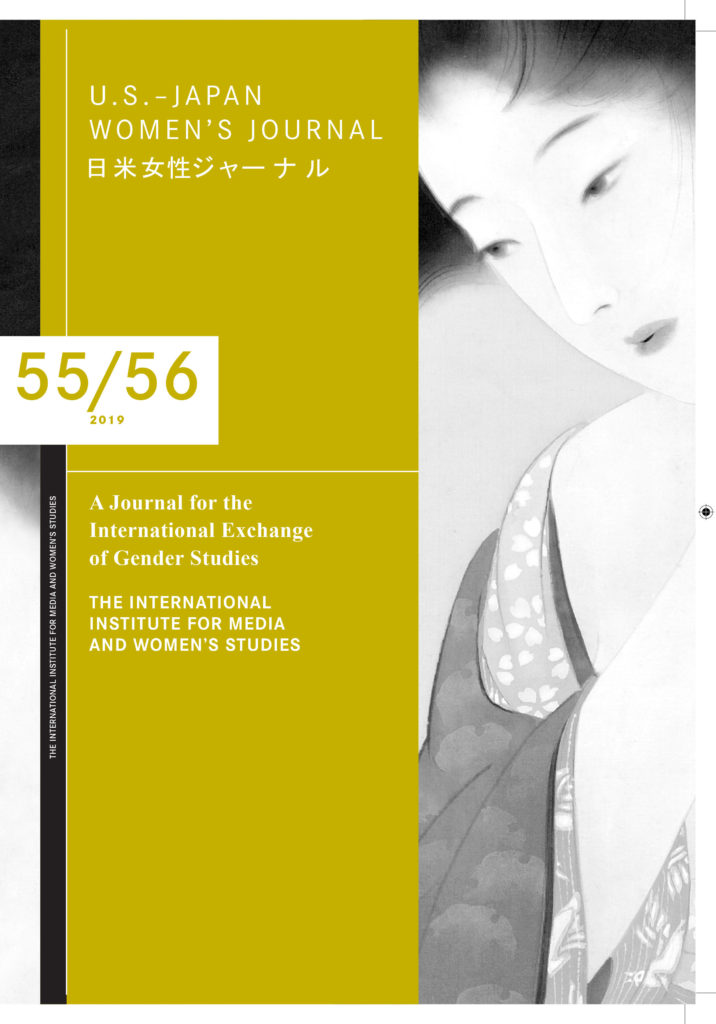
U.S.-Japan Women’s Journal
Volume 55/56 (2019)
This issue of U.S.-Japan Women’s Journal begins with the following articles:
Redeeming Michitsuna’s Mother: A Feminist Reading of the Kagerō Diary / 道綱母の名誉救済:蜻蛉日記のフェミニスト的解釈
Margaret H. Childs




